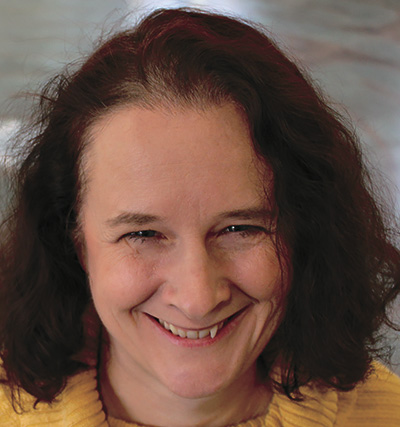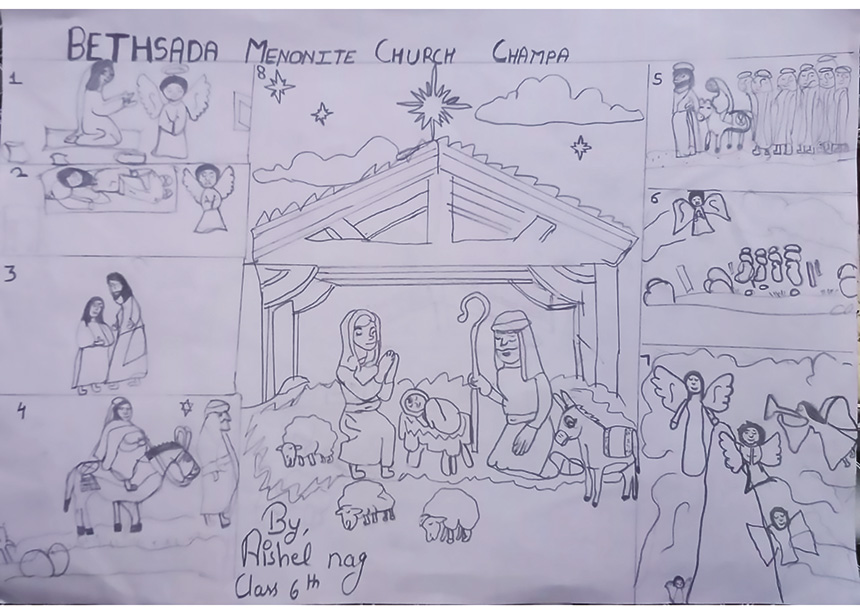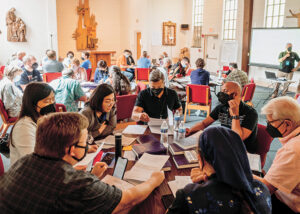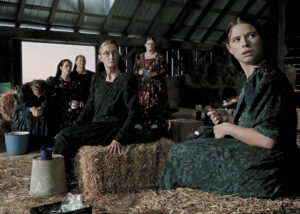Rahab acts by faith
Joshua 2:1-21; 6:22-25; Matthew 1:5; Hebrews 11:29-31; James 2:23-26.
Beyond the narrative in Joshua and Jesus’ genealogy, Rahab is mentioned two other times in Scripture. Both times her name appears in a list of heroes of the faith, and it seems like a miracle that this woman, a prostitute with only a brief mention in the Hebrew Scriptures, manages to make the cut. The author of Hebrews lists several people who acted “by faith” and were thus rewarded. In this long and illustrious list, Rahab is the only woman commended for her faith. The author of James gives two examples of people “justified by works and not by faith alone” (2:24): Abraham and Rahab.
Clearly, Rahab loomed larger in the faith tradition than her brief story in the Book of Joshua might suggest. She is, in a sense, the saviour of those who would become her people; an exemplar of the type of faith in God that leads to courageous and significant works on behalf of God’s people.
One might think that as her status in the community grew, her story might have been cleaned up a bit. We might expect the focus to shift from Rahab’s earlier identity as a prostitute to her later identity as the wife of the Israelite Salmon and the mother of Boaz. Yet in both of these New Testament books, the authors identify this great hero of the faith as “Rahab the prostitute.”
I find myself wondering why the authors of both books would designate her in this way. Is this an attempt to diminish her even as they acknowledge her important role in Israelite history? Or is the mention of Rahab’s social position meant to emphasize the grace offered by God? “God can use anyone, even a prostitute!”
Why does Rahab alone have her morality questioned in the way she is identified? In the entire litany of the faithful from Hebrews 11, Rahab is the only one whose name is followed by any sort of qualifier. She is included with the men, but she cannot be just “Rahab” as the men are allowed to be identified solely by their names. She is “Rahab the prostitute,” a label that defines her in relation to men.
Yet the full content of these two passages suggests that we all find our identity in our relationship with God, not in how other people view us. The authors of Hebrews and James may have viewed Rahab as a prostitute, but the crux of her identity was her faith in God and the courageous action she took.
When traditionally marginalized people are included in more mainstream contexts, there is often still a tendency to qualify their identities, to make sure that their marginal status is understood even as they may be placed alongside “important” figures. I am identified as a “woman pastor” far more often than my male colleagues are identified as “men pastors.” Those with physical and mental differences often receive qualifiers with their identities: the blind writer, the athlete in the wheelchair, the autistic professor. People who identify with racial and ethnic minority groups know this experience well, as do LGBTQ+ people.
Those who benefit from the status quo want to control how we are identified. And to a certain extent, we can’t stop them: what they write gets into the history books; what they say gets broadcast over the airwaves. But in our own selves, in our own relationship with God, we can claim our pure identity as beloved children. In the context of God’s reign, Rahab is not “Rahab the prostitute,” or even Rahab the mother of Boaz; she is Rahab the faithful and courageous. May we also find our identity in our relationship to God.
Connect: Sit in silence for at least three minutes and appreciate your identity as a child of God.
Consider: What labels have people given you? What labels have you given others? What labels have you given yourself? What is the difference between an identity and a label? To what extent is one’s identity—be it gender, race, occupation, religion, relationship—important? In what ways does a focus on external identity diminish us? How can you claim your relationship with God as your central identity?
Mary treasures and ponders
Luke 2:1-20
This story of Jesus’ birth has a warm glow around it as we remember Christmas Eve services filled with candlelight and familiar hymns. When we hear these words, we envision the nativity scene: a loyal father and loving mother gazing down contentedly at their blissfully peaceful newborn son. By all means, we should hold that warmth in our hearts and enjoy the joyful memories. And we should also acknowledge that the holy family was quite possibly not in such a serene state at this point in the story.
After a long and difficult journey, Mary gives birth in a strange town, in a strange room, with an animal feeding trough for her son’s bed. None of this was in her birth plan. There is, for some new mothers, a surge of joy at holding their child for the first time, looking into the face of the one who has been hidden within their body for the past months. And mixed with the joy they may feel, there is also exhaustion, deep weariness, and fear—a terrifying realization of how vulnerable this human is that they love so deeply.
Amid all this, Mary receives unexpected visitors: the shepherds. They have come straight from the fields “with haste,” so they are likely dirty, smelly, out of breath. Imagine Mary’s surprise when this crew bursts in to gape at the child in the manger, when they start telling anyone who will listen about the angel, the good news, the multitude of heavenly host. It must have been disconcerting, to say the least. But Mary does not kick them out; she does not ask what they are doing there. She does not start yelling or break down in tears. She “treasured all these words and pondered them in her heart.”
This is the second time we are told that Mary pondered. It is a lovely word. Pondering suggests a calm centre, a certain interior spaciousness, an ability to step back to a place of perspective and contemplation—which is not the state I imagine I would be in if the angel Gabriel visited me, or if a group of rough strangers crashed into my space right after I gave birth and started telling stories of more angel visitations.
I can imagine myself doing many things if I were in a situation similar to Mary’s. I might run or hide, cry or yell, start nervously fidgeting or be completely unable to move at all. What I struggle to imagine is that I would be able to ponder this angel presence, the unbelievable message from the excitable shepherds—to take the significance of these holy moments into my being and hold them tenderly, with curiosity, gratitude and wonder.
As hard as birthing Jesus was, mothering him surely proved much more difficult. And isn’t that the way it always is? Whether we are bringing life to a new human, to a new community, to an artistic work, to a project, or to an idea, the initial creation is often difficult, but it is also exciting. Creative work is carried forward by longing, anticipation and holy energy. Then comes the equally important, but less recognized, work of nurturing and sustaining our creations.
Mary does not just give birth to Jesus; she raises him. She cares for him, nurtures him, teaches him, walks with him all through his life. And I wonder whether all this pondering at the beginning of her journey is part of what helped her with the ongoing challenges of motherhood. She maintained the energy of creation; she noticed the presence and work of God; she sat at the still centre of the miracle that was her life and held it as a treasure.
May we do the same in these holy days of Christmas.
Connect: Centre yourself in God’s presence. With God, walk through what you expect of your Christmas day and choose a time—even just 10 minutes—when you will step away from the holiday activities to ponder God’s immeasurable love for you.
Consider: What have you created? How would you compare the difficulty of creating to the difficulty of nurturing what you created? Where did you get energy for the creative part of your work? Where did you find energy to sustain your creation? Where is God present for you in the process of creation and the task of sustaining?
Anna praises God
Luke 2:36-38
This story tells of two elderly people at the temple who speak about the Christ child. I do not intend to diminish Simeon, who is obviously, as the text tells us, righteous and devout. He is a faithful man who is attuned enough to the Holy Spirit to be led to the temple on the day Jesus shows up. Still, while Simeon is identified as a “man,” Anna is introduced as a “prophet” (Luke 2:25, 36). An authority is given to Anna beyond what Simeon holds. Only three living people are named as prophets in the Gospels: John the Baptist, Jesus and Anna.
While Simeon “came into the temple,” Anna “never left the temple” (verses 27, 37). She “worshipped there with fasting and prayer night and day.” Of course, simply being in the temple—even being there “night and day”—does not make one righteous. In the Gospels, the temple is a conflicted space. It is where Jesus teaches as well as where religious leaders plot against Jesus. The temple is the setting for the parable about the Pharisee and the tax collector who both come to pray, but only the humble tax collector “went down to his home justified.” And, of course, we have the (in)famous scene of Jesus turning over the tables in the temple court.
To be sure, there are plenty of unpleasant people who spend a lot of time at church yet still act in ungodly, harmful ways; plenty of people who cultivate a religious veneer for their own selfish purposes. Being in a religious building and doing “churchy” things is obviously no guarantee of a righteous life.
But, for some like Anna, their presence with the religious community is sincere, their prayer is a true connection to the divine, and the spiritual disciplines they practise are for God and for themselves rather than for the appearance of it all. Anna inhabits the sacred space of the temple not for show, not to gain prestige, not even because it’s what she is supposed to do; she inhabits the temple as a means of being in relationship with God and with God’s people.
We are told that Anna approaches the holy family in the temple “at that moment.” Which, of course, means we have to look back and see what exactly “that moment” was: when Simeon tells Mary, “A sword will pierce your own soul too” (verse 35). That moment. It must have been a painful moment for Mary. Confusing. Heartbreaking. Frightening. Simeon’s words are true, but heavy. Anna comes right at that moment and begins to praise God. Even though we do not hear the specific words that Anna speaks, we can imagine what a gift these words of praise must be for Mary at that moment.
While the grief and fear—the piercing swords—that Simeon speaks of are real, Anna affirms that the bigger, the more immanent and eternal reality, is the redemption God is bringing to the world in Jesus. Many scholars will point out that the Gospel of Luke frequently pairs male and female characters together in the narrative and in parables. But Anna shows up here to provide not just gender balance, but theological balance. Yes, the reality of Jesus’ life—and therefore the lives of his parents—will be difficult and painful. And the reality of God’s life participating in the world through Jesus is worthy of praise and celebration. The crucifixion is real. The resurrection is also real—and more powerful.
While true prophets might speak hard truths, they also radiate hope and joy; they believe deeply in redemption because they are deeply connected to the Redeemer. It is because of Anna’s constant presence at the temple, because of her prayer and fasting, that she is able to be present for the holy family at that moment, to offer praise and hope.
Connect: Use your holy imagination to write down the words Anna might have spoken to Mary at that moment in the temple.
Consider: What hard truths about your own life do you need to accept? What swords are piercing your soul? And what words of life and hope does God have for you at this moment? What might the prophet Anna say to you?
Joanna Harader serves as pastor of Peace Mennonite Church in Lawrence, Kan.
From Expecting Emmanuel: Eight Women Who Prepared the Way by Joanna Harader. Artwork by Michelle Burkholder. Used by permission of Herald Press. All rights reserved.










Leave a Reply
You must be logged in to post a comment.